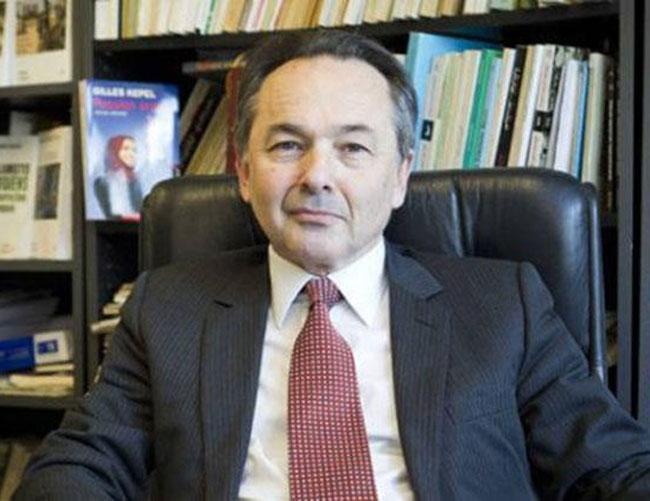‘Russia is the kingmaker in the Middle East,’ French professor Gilles Kepel says
İpek Yezdani - ISTANBUL

Russia is the “kingmaker” in the Middle East because of the failure of Western policies, according to Gilles Kepel, a French political scientist who is currently at the Paris Institute of Political Studies.
Kepel, whose new book “Beyond Chaos: The Crisis in the Mediterranean and the Middle East” is coming out in two weeks in France, visited Istanbul in order to speak at a conference organized by the Turkish Industry and Business Association (TÜSİAD) and Boğaziçi University.
Speaking to daily Hürriyet on the sidelines of the conference, he said everyone thinks Russia and Iran are partners in the Middle East. However, Russia has four partners in the region.
“It also has very close links with Israel, with Saudi Arabia and with Turkey. So Putin is acting together with these four allies, but these four allies have conflicting views for the future of Syria,” Kepel said.
The political scientist said he believed the Idlib offensive would take place “in one way or another.”
“Because [Syrian President] Bashar al-Assad does not want this area to remain outside its reach. On the other hand, the Russians want a political solution. Where they differ from the Assad regime and Iranians is the military solution. Russia does not want that,” he added.
Iranian President Hassan Rouhani and Assad have been pushing for bombing in Idlib, however for Turkey, this was a very difficult thing to accept, said Kepel.
“Many of those rebel groups in Idlib—except Jabhat al-Nusra—have links with Turkey, so they cannot be abandoned like that. Plus, if there is massive air bombing and humanitarian catastrophe in Idlib, the pressure for Turkey to open its borders to the Syrian immigrants will be enormous. This is also something Turkey would like to avoid, for two reasons: There are already around three million refugees in Turkey and the burden of the refugees over the Turkish state is huge. So the Turkish government does not want a new refugee burden on its oil,” the political scientist said.
Kepel stressed there was also a major security dimension of a possible air bombardment to Idlib for Turkey:
“Among the Idlib rebels, there are a number of jihadists, particularly from al-Nusra. If there is a massive crossing of the Turkish border, there might be a number of Nusra people crossing the border with them—and Turkey definitely does not want them on its soil,” he said.
Western countries also fear jihadists coming from European countries might use this possibility to go back to Western Europe, he said. “So there is also strong pressure from European countries if Turkey does not open its borders,” Kepel said.
For different reasons, Israel and Saudi Arabia have made peace with Assad’s solution in Syria. “They have no objection to it. But they do not want Iranians to have a big stake. They are fine with Russia’s presence in Syria but they are not fine if Syria is entirely under Iranian control,” he said.
Kepel said the main focus for the Turkish government in Syria is the YPG and avoiding the building of a Kurdish state in the northern Syria.
“This is the key issue, this is why Turkish army is in Afrin, al-Bab and Jarablus. This is why they are putting pressure on Western forces to leave northern Syria, Haseke, etc. On this issue, Turkey and Russia have the same objective. Because as long as there are Western forces east of the Euphrates, the YPG will be there and no one will attack them because in order to attack them, you have to attack the Americans,” the political scientist said.
Regarding the shooting down of the Russian plane by the Syrian air defense, Kepel said what happened during that incident was “very unclear.”
“Was it only an accident? Or is it something which was done on purpose? We do not know that. This will lead to increased tension between the Russian and Syrian military which the Russians think is very bad. In Syria, Russian lieutenants are giving orders to Syrian generals. And they are very harsh with them. But the situation is extremely volatile. Even if it was an accident, it is an accident which will have very strong military and political consequences,” he said.
















